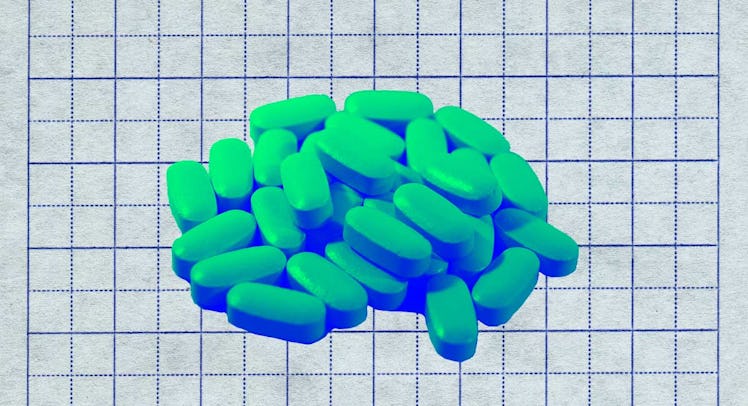Keep Weight-Loss Supplements Away From Kids, Out of Your Home
Weight-loss supplements are ineffective and contain all sorts of surprise ingredients. So the serious risk they pose to families is difficult to justify.

Americans love weight-loss supplements because they suggest a one-step cure to a lifelong problem. Some 170 million of us take them daily. Of course we do! Why diet, exercise, or maintain a healthy lifestyle when you can pop a pill instead? Well, there’s an unfortunate answer to that. Studies suggest that most weight-loss supplements are bogus, with many lacking even the most basic safety and efficacy standards. Many weight-loss supplements on the market contain bizarre contaminants, from animal extracts to heavy metals, and worse. Physicians estimate that weight-loss supplements account for 20,000 ER visits each year.
Given the lack of evidence that supplements work, and the relatively high risk of harm, experts agree that it’s almost always better to avoid them entirely. Here’s the data behind these conclusions:
Weight-Loss Supplements Don’t Work
Physicians consider two major factors when evaluating a drug: safety and efficacy (in other words: does the drug work and will it hurt you?). A recent Harvard study, published in American Family Physician, reviewed the evidence of safety and efficacy behind a long list of weight-loss supplements and concluded that not a single one made a compelling case for itself. Several supplements had never been proven unsafe or ineffective, so the researchers resigned themselves to cautioning but not outright discouraging their use. Others had been proven safe, but not effective. And a handful had been shown to be unsafe and ineffective.
Weight-Loss Supplements Are Largely Contaminated
It’s no secret that the largely unregulated supplement industry can afford to put almost anything in a pill with impunity. To combat this, Vox compiled a searchable database of supplements and their likely contaminants, which is worth perusing before you purchase any supplement. In some corners of the supplement market, however, the contamination is above average. Supplements associated with Traditional Chinese Medicine, for instance, have been shown to be especially contaminated. In a recent study of 26 TCM weight-loss supplements, researchers found only two that were not contaminated with unexpected drugs, heavy metals, or animal extracts.
Weight-Loss Supplements Cause 20,000 ER Visits Each Year
A recent study in the New England Journal of Medicine concluded that weight-loss supplements land 23,000 patients in emergency rooms each year. More than half the time, it’s due to an allergic reaction or other adverse reaction (it doesn’t help that supplement labels tend to leave out key ingredients). In about 20 percent of cases, the victims were not misguided dieters but unsuspecting children who got into poorly secured supplements and popped too many pills.
This final data set highlights the very real risks of weight-loss supplements. Every medication carries risks (adverse reactions, children getting into the medicine cabinet) but remains worthwhile because it works. But, since weight-loss supplements are ineffective and contain all sorts of surprise ingredients, the serious risk they pose to families is much harder to justify.
This article was originally published on